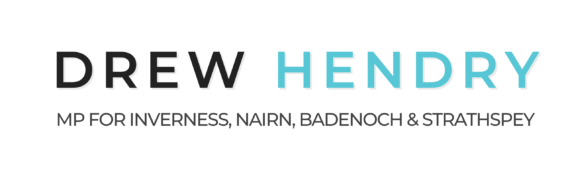UK Government aims to break international law and devolution
When the UK Government’s Internal Market Bill was launched, an establishment newspaper in Scotland called it a day of national shame and infamy. It was right. With malice aforethought, the UK Government are breaking international law.
In a “specific and limited way” is how the Prime Minister uses the words integrity and good faith.
He and his Government will ignore any legitimate boundary and destroy all our international relationships to get their way. You don’t only need to look at their disregard for our European neighbours, just read the scathing letter to the Prime Minister from the US House of Representatives. They could not be clearer – break international law, and there will be no free trade deal between the USA and the UK.
Of course, this new bill doesn’t just break international law; it also aims to break devolution. In its current form – as I write this article – this bill will leave future bills passed by devolved administrations open to challenge. Private companies will be able to trade unhindered to weaken and undermine our NHS and publicly owned water company—lowering standards and raising prices along the way.
The specific threat to standards is palpable. Clauses 2 to 9 contain sweeping powers to compel Scotland to accept lower standards set elsewhere in the UK on animal welfare, the environment and food safety protections.
When directly challenged UK Government Ministers refuse to rule out that we will have to accept chlorinated chicken in our shops. Imported hormone-injected beef can and will undercut our farmers and their quality production. It will be a race to the bottom.
And you don’t have to take my word for it; the National Farmers Union, the General Teaching Council for Scotland, the Scottish Council for Development and Industry, the STUC, the Welsh Government and even the Chair of the Public Administration and Constitutional Affairs Committee are amongst those opposing this bill and the power grab on the devolved administrations.
This Tory Government proposes to replace the cooperative Common Framework approach with an Office for the Internal Market—an unelected quango.
These Government appointed unelected arbitrators will be given an effective veto over the Scottish Parliament and devolution.
Analysis by the Scottish Government has revealed that successful Scottish policies such as alcohol minimum unit pricing and our policy on tuition fees would be among the Bills referred to the Office for the Internal Market.
And how will this office decide on cases referred to it? Even the Institute for Government has warned “it is not clear how disputes around the functioning of the internal market will be managed”
Time again, this Tory Government have made apparent co-operation and consultation is anathema to them. They are a Government petulantly demanding compliance both here at home and on the international stage.
Any deal, understanding, commitment, promise or even legally binding treaty is disposable. Trust, honour and obligation are now words to trade on and be sneered at.
What other inconvenient laws are next? Where does this stop?
Article published in Inverness Courier on 22 September 2020 and Strathspey Herald on 23 September 2020.
Keep up to date with new articles at www.drewhendrymp.scot
Find out more about my work in parliament at www.theyworkforyou.com

